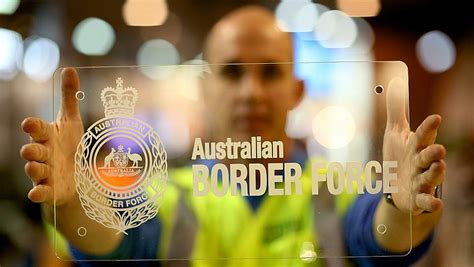The recent report that Australian Border Force (ABF) officers inspected over 10,000 phones in the past two years has sparked a significant debate on digital privacy and civil rights. While close to 94% of travelers willingly provided their phone’s passcode despite it being non-mandatory, it underscores a critical issue: the general public’s lack of awareness regarding their legal rights. The anecdotal sentiment from online commentators suggests a pressing need for better education around individual rights when interacting with authorities.
Travelers often find themselves in a precarious situation at international borders. In the United States, for instance, U.S. citizens can technically decline to unlock their phones but must brace for potential hassles, such as temporary seizures or extended interrogations. Foreign tourists, on the other hand, may face outright entry denial if they refuse a search, portraying a stark divide in treatment. This dance between compliance and withholding crucial personal data brings to light the uneven terrain of border security protocols.
Australia mirrors the U.S. situation to an extent. Even if the ABF can’t legally compel you to reveal your password, they can still confiscate your device indefinitely under suspicion, rarely explaining the specifics. More disconcerting is the absence of rigorous accountability for such detentions. A traveler who missed these nuances—refusing to provide a passcode—may become the subject of frequent, invasive searches upon subsequent entries into the country.
For those heavily reliant on their devices, suggestions to sidestep these privacy invasions range from using burner phones to factory resetting devices before travel. While the idea of traveling with a clean, data-free phone has its appeals, it also risks raising red flags among border officials, as noted by some travelers who have experienced heightened scrutiny upon presenting a relatively ’empty’ device.
Tech companies with global presence have also devised specific policies for employees traveling to high-risk regions. Google’s strategy for employee devices entering China, which involves using company-provided ‘loaner’ devices and wiping them post-border inspection, exemplifies corporate caution against unauthorized data access. Smaller tech-savvy travelers can certainly borrow a leaf from these practices to secure their information.
Innovative technical solutions such as enabling pair locking on iPhones or using LUKS-encrypted Linux laptops to store vital backups have surfaced as practical tools for safeguarding sensitive information. However, the limitations are clear: there’s only so much software and precaution can achieve when faced with the inherent powers border authorities possess, which often can supersede those granted to regular law enforcement.
It’s obvious that the ever-evolving landscape of privacy rights demands robust legal frameworks and the judiciary’s consistent defense of these rights. Meanwhile, travelers must remain vigilant and well-informed. Those who value their digital privacy should meticulously plan their digital footprint, integrate secure practices, and perhaps most importantly, advocate for clearer, fairer policies that balance national security with personal privacy.


Leave a Reply